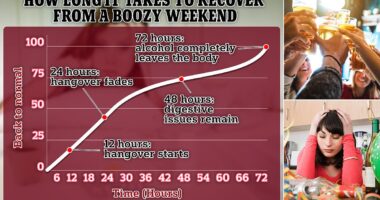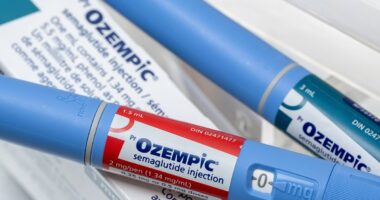Hundreds of residents in a UK seaside town have fallen ill following a suspected cryptosporidium outbreak.
The UK Health Security Agency (UKHSA) has launched an investigation after “hundreds” showed alarming symptoms in Brixham, South Devon.
The symptoms included severe diarrhoea, stomach cramps, and fever.
South West Water (SWW) has reassured residents that drinking water is safe and added that all tests for cryptosporidium returned negative results.
A spokesman for SWW said: “We are aware of posts on social media regarding the quality of drinking water in the Brixham area and we would like to reassure customers that the water supply is fine to continue to use as normal.
“We have carried out sampling and tests for cryptosporidium and all results have come back clear. We always carefully monitor our drinking water supplies and we are supporting the UK Health Security Agency with their investigations.”
Cryptosporidiosis, commonly known as “Crypto,” is an illness that leads to severe watery diarrhoea, the Centers for Disease Control and Prevention (CDC) says.
It is caused by microscopic parasites known as Cryptosporidium.
These germs can be found in water, food, soil, or on surfaces and dirty hands contaminated with the faeces of infected humans or animals.
Ensuring proper hygiene and sanitation can help prevent the spread of this harmful parasite.
While anyone can contract Crypto, it poses a significant threat to individuals with weakened immune systems.
Those at higher risk include people undergoing cancer treatment, organ transplant recipients, and individuals with HIV.
Such patients often experience more severe and potentially life-threatening symptoms due to their reduced ability to fight off infections.
The parasite is found throughout the world.
-
Watery diarrhoea
-
Stomach cramps or pain
-
Dehydration
-
Nausea
-
Vomiting
-
Fever
-
Weight loss
Symptoms usually begin two to 10 days (average seven days) after becoming infected with the parasite.
They last about one to two weeks in people with healthy immune systems.
Contact your GP if you develop severe symptoms and believe you have cryptosporidiosis.
-
Drink plenty of fluids to avoid dehydration, the CDC urges.
-
Maintain a well-balanced diet.
-
Avoid beverages that contain caffeine, such as tea, coffee, and many soft drinks.
-
Avoid alcohol, as it can lead to dehydration.










